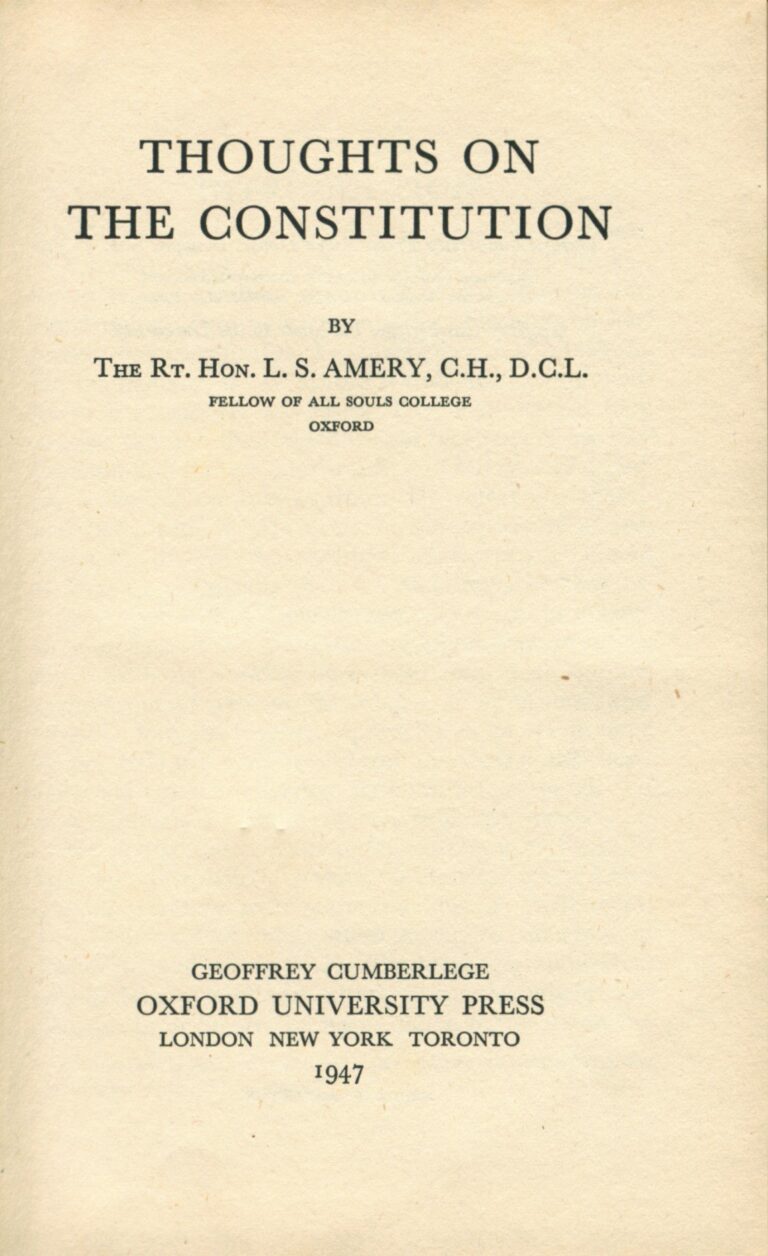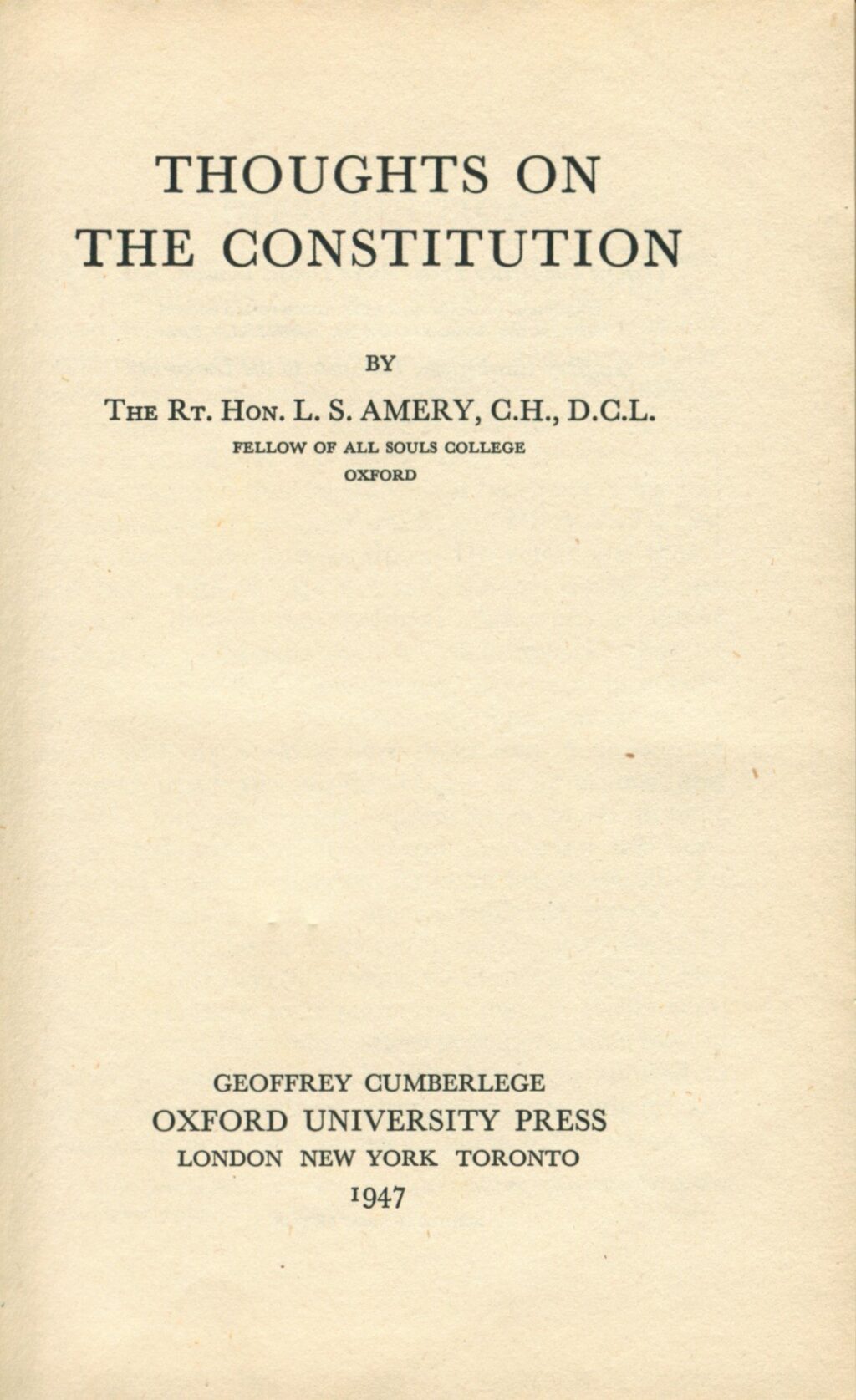L.S. Amery, Thoughts on the Constitution (1947)
As an ardent supporter of the Commonwealth and frequent visitor to Great Britain, Robert Menzies maintained close contact with many of Britain’s thought leaders. One of those to whom he was closest was the conservative politician and prolific political theoriser Leo Amery. The Menzies Collection contains 11 Amery books, 8 of which have been personally inscribed by the author.
Menzies’s 1947 copy of Thoughts on the Constitution is of particular interest because of the insights it offers into a crucial snapshot of time. That time was the immediate aftermath of World War Two, when Western Europe and particularly Great Britain had been economically devastated. Menzies had spent much of the war warning that Australia might meet the same fate, but luckily she was spared thanks to the financial boost provided by the influx of over 1 million US troops who stayed in Australia during the war, and spent much of their generous GI salaries here.
Despite being insulated from the carnage, the economic devastation of Europe would have very important consequences for Australia. Most crucial was its role in the decline of Empire, which the British Government could no longer afford to maintain – and the related decline of Britain as Australia’s major trading partner. The latter would be accelerated by America’s demand for a new economic order, in which the old system of preferential tariffs would be abolished and nations would have to compete on an equal playing field. But the poverty of Western Europe was certainly concerning in its own right, not least because it might make its nations more susceptible to the spread of communism.
These concerns were clearly encapsulated, albeit from the British perspective, in an extensive note Amery left inside the book. It reads:
‘I have from time to time I think sent you some of my pessimistic prognostications about the impending economic crisis here. I fear they erred if anything on the side of optimism and that we are going to be confronted by a pretty desperate situation early next year. I doubt very much whether anything will come of Marshall’s suggestions, even if there is going to be American help for Europe it will not be sufficient to see us through here. Our only chance lies in breaking completely away from the American policy of non-discrimination and making such bilateral bargains as we can with those who are content to be paid in British goods for their produce, first and foremost by the rest of the Empire and secondly by other countries who are prepared to deal with us on a mutual basis irrespective of precise price levels. In that light we shall need all that Australia can send us and will I hope by then have the sense to come to long-term preferential agreements which would justify an expansion of Australian output and an increased flow of migration.
I am by no means sure that the present discussions over European re-construction will not finally put an end to all illusions about the possibility of co-operation between Western Europe and Russia and her satellites. The danger will be if Western Europe fails to recover that there may be serious attempts by the Communist Party in countries like France and Italy to seize control with Russian support and that might well precipitate intervention on the parts of the United States and ourselves.
Yours ever, LS Amery.’
‘Marshall’s suggestions’ referred to the famous scheme first enunciated by Secretary of State George C. Marshall less than a month before Amery wrote to Menzies. Later known as the ‘Marshall Plan’, its core was an unprecedented aid package of $13.3 billion which would indeed stabilise the economies of Western Europe, albeit with the attached condition that they had to agree to removing trade barriers. Britain herself would receive more than a quarter of the funding, but this merely staved off bankruptcy; it could not halt her overall retreat from being a true global power.
Sign up to our newsletter
Sign up for our monthly newsletter to hear the latest news and receive information about upcoming events.



